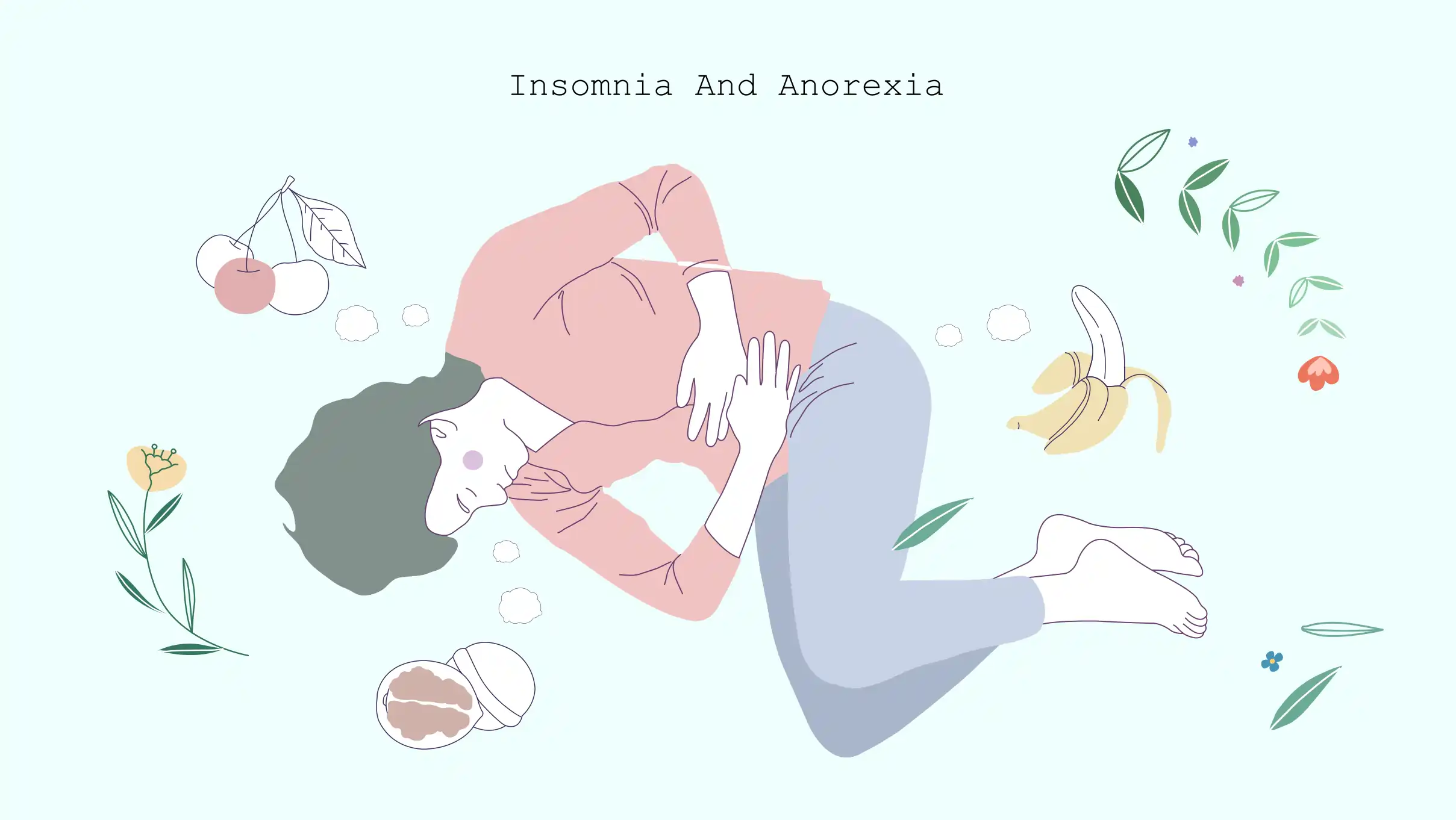The Impact of an Eating Disorder on Sleep
Written by


Anorexia nervosa or simply known as anorexia is an eating disorder associated with extremely low body weight, fear of gaining weight, and having an abnormal perception of weight. People suffering from this disorder tend to use any means to maintain a particular body shape, such as misusing laxatives or using enemas. This condition harms their overall health and can also impact sleep and disrupt daily life. Today, we are here to tell you everything you must know about insomnia and anorexia because sleep and eating disorders can be interconnected. Read ahead!
What is Anorexia nervosa?
Anorexia is an eating disorder where people suffering from it not only restrict their calorie intake severely but also use unhealthy methods to prevent weight gain. They may purge everything they eat regularly and even exercise compulsively. Individuals with anorexia also have an unrealistic self-image and truly fear gaining weight.
Anorexia is a severe condition that needs immediate attention. Extreme weight loss can be life-threatening.
Symptoms of Anorexia nervosa?
People suffering from anorexia can suffer from both physical and mental symptoms. Let’s understand some of the most common symptoms of anorexia.
Physical symptoms
Some of the most common physical symptoms are;
- Dizziness or fainting
- Tiredness or fatigue
- Poor concentration and focus
- Frequent illness
- Muscle weakness or loss of muscle
- Shortness of breath
- Low blood pressure and slow or irregular heartbeat
- Absent periods (in women)
Emotional and behavioural symptoms
Some of the most common emotional and behavioural symptoms of anorexia are;
- Consuming too little food every day or severe dieting or fasting
- Intentional vomiting
- Lacking emotions
- Social withdrawal
- Insomnia and irritability
- Excessive fear of gaining weight
- Not eating in public
- Frequently checking the mirror for flaws
- Reduced interest in sex
What Causes Anorexia nervosa?
Even today, the exact reason for anorexia is unknown. But some factors that contribute towards the same are;
Biological
Genetics and hormones are associated with the development of anorexia. Some research shows us a link between serotonin and anorexia. Serotonin is a chemical that’s produced in the brain, which is also responsible for sleep, as low serotonin levels can lead to insomnia.
Psychological
For instance, someone suffering from a condition such as obsessive-compulsive disorder may be more prone to a strict diet or exercise regime. As they cannot function well without them.
Environmental
Sometimes, the pressure of maintaining a particular shape as portrayed in the movies or television can lead to anorexia, especially in young people.
What Are the Treatments for Eating Disorders?
Treatments for eating disorders depend on the severity and specific needs. You must also opt for treatment if you are not anorexic but suffering from food-related issues. Some treatments are;
Psychotherapy
The right therapy will be decided by the mental health therapist. However, one of the most common solutions here is Cognitive Behavioural Therapy (CBT). It helps one overcome distorted self-image and patterns. Therapists also work with parents of anorexic children to help them cultivate good eating habits.
Medications
People with anorexia may also suffer from other health issues, such as depression or insomnia. Therefore, medicines to combat the other problem can help treat anorexia.
Nutrition Counseling
Your doctor may help you meet with a dietician who specialises in managing eating disorders. They can help improve eating habits effectively.
What’s the Relationship Between Sleep and Eating Disorders?
If you are wondering if this eating disorder is associated with sleeping problems, it can be because they are related. Experts believe that eating disorders and sleep are interconnected and share a bidirectional relationship. This tells us that people suffering from eating disorders may also experience disrupted sleep.
One analysis of 500 college-aged women showed us that almost 30% per cent of those diagnosed with eating disorders also have insomnia. Also, people who suffer from binge eating disorder are seen to have short sleep duration. Infact, people suffering from anorexia are seen to have poor sleep patterns and low-quality sleep.
Although we need more in-depth studies on the subject, there are quite a few that link eating disorders to sleep.
Causes
The connection between sleep and eating disorders hasn’t been fully explored yet because all the factors that play an important role, such as mental, emotional and physical are complex. Hence, it becomes very challenging to know more. That said, there are a few studies that help us understand more on the subject.
In one study, it was found that mental health issues, such as depression and anxiety can contribute to eating and sleep disorders. And for individuals with anorexia, malnutrition can cause several hormonal imbalances, which can have a negative impact on sleep.
How Can People With Eating Disorders Improve Their Sleep?
When you suffer from an eating disorder, you are not only letting it impact your health but also disrupting your sleep, making it difficult for you to function well every day. To combat your sleeping problem, you must visit a doctor and tell them all the symptoms you are suffering from. Based on that, your doctor will prescribe the right course of action for a sleeping eating disorder. Some other things you can try are;
- Have a relaxing bedtime routine
- Maintain a consistent sleep schedule
- Avoid screen time at least an hour to 30 minutes before bed
Conclusion
Eating disorders are not just hazardous for the health but they can negatively impact your sleep as well. It is essential to seek help immediately to improve the quality of your life.
FAQs
Is insomnia a side effect of anorexia?
No, but people suffering from anorexia tend to suffer from insomnia.
Does starvation cause insomnia?
Yes, if you are intentionally starving yourself, it could be a sign of anorexia. It can cause insomnia. It is essential to seek immediate treatment.
What are 2 warning signs that someone is suffering from anorexia?
They may lie about their eating habits or tend to eat very slowly to hide how much they are actually consuming.
What are the five warning signs of anorexia?
The five warning signs are;
- They may purge immediately after eating
- They may lie about their eating habits
- They may not eat in public or eat very slowly to hide the amount of food they consume
- They excessively exercise
- Mood changes
people like this article
Written by



